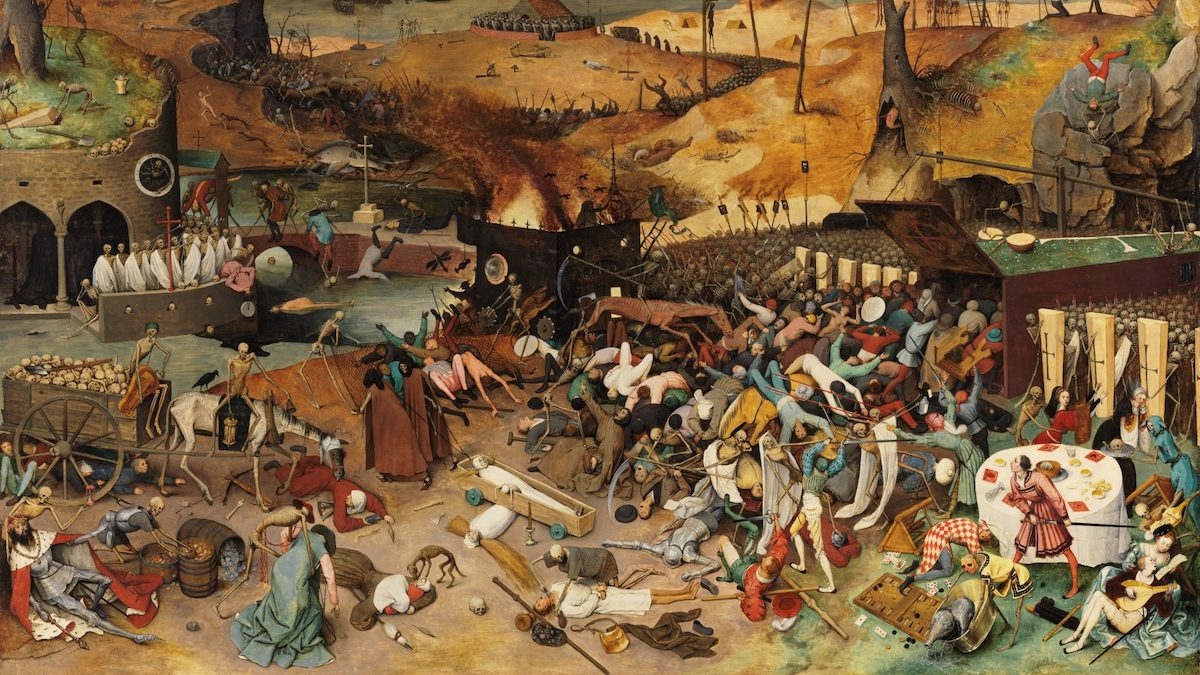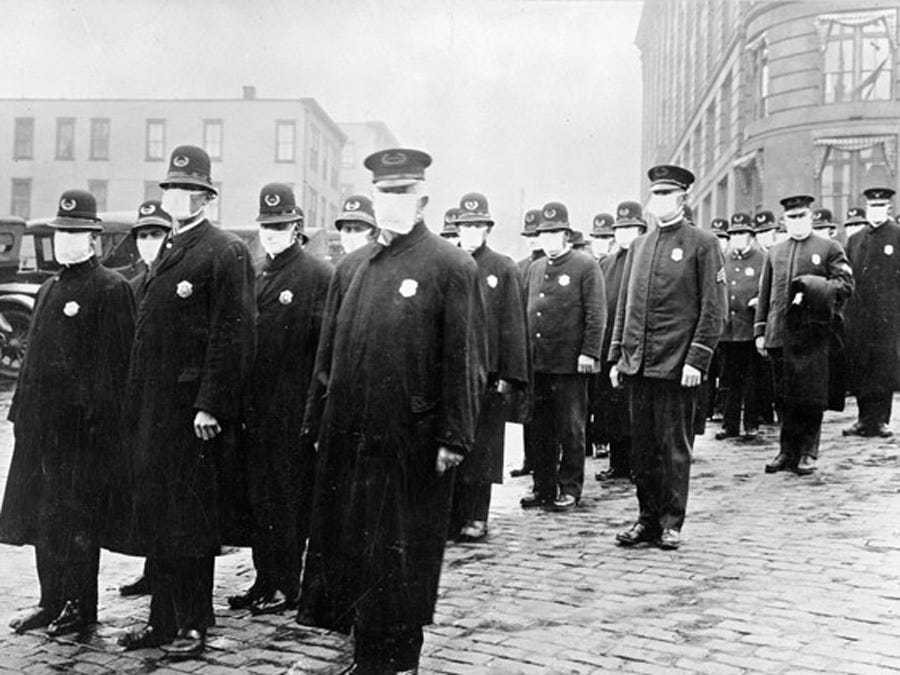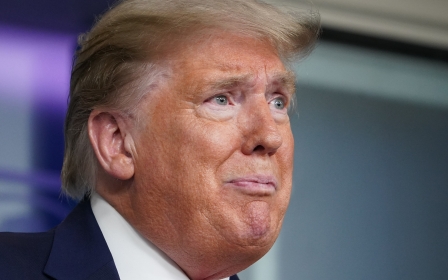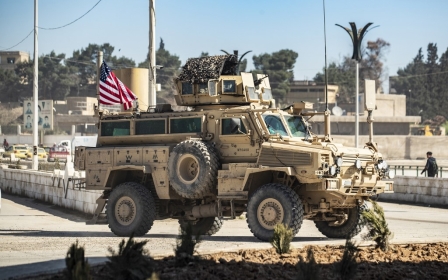From the plague to coronavirus: How empire, war and trade spread pandemics

As much as it is a global health emergency, the coronavirus pandemic is also a geopolitical event akin to the outbreak of a major war. Historically speaking, pandemics, from the Black Death through to the flu epidemic of 1918, have had a major impact on societies, and politics.
Since the Roman Empire, there have been recurrent linkages between imperialism and the spread of disease. While the world has been transformed by capitalism and technology over the last century, there are still striking ways in which pandemics impact the functioning of global systems that are relevant to today's coronavirus crisis.
It was imperialist war that acted as the conveyor belt for the disease to spread
In the Black Death, it was rats and the plague-infested fleas on their backs that spread the disease. But more recently, historians have argued that it was humans, not the rats who accompanied them, that carried the bubonic plague from Asia to Europe.
More precisely, it was imperialist war that acted as the conveyor belt for the disease to spread.
At the siege of the city of Caffa in the Crimea, a novel form of biological warfare was introduced by the Mongol besiegers, who, by 1347, were carrying the plague. Infected corpses of their dead were hurled into the Italian-controlled city to break its resistance.
The city was controlled by Genoese merchants who had won a concession from the Mongols, and had a monopoly on trade with Europe as well as controlling a major slave market.
Religious tension between the Muslim Mongol forces and the Christian Genoese, who were leading players in the Crusades in the eastern Mediterranean, fanned the conflict. A first attack saw the Mongols suffer 15,000 casualties from the well-armed Genoese forces.
When the city fell, fleeing Genoese merchants took the deadly plague with them via Constantinople, where they infected the city, to Europe. In the wake of the plague, the once-powerful Genoese empire went into decline.
The 1918 pandemic
In the worst modern pandemic, the misnamed Spanish flu, recently unearthed records show that the transport of Chinese labourers to work behind the British and French lines on World War I's Western Front may have been the source of the pandemic.
Some 3,000 of the 25,000 Chinese Labour Corps workers who were moved across Canada en route to Europe had to be placed in medical quarantine, many with flu-like symptoms.
Mark Humphries, a historian at Wilfrid Laurier University in Canada, found archival evidence that a respiratory illness striking northern China in November 1917 was identified later by Chinese health officials as identical to the Spanish flu. Some argue that the flu helped bring the war to an end.
Plague and climate change
War and pandemics are long-time friends. The plague of Justinian in the 6th century AD helped bring about the end of the Roman Empire. The plague arrived in Constantinople in 542 CE, almost a year after the disease first appeared in the outer provinces of the Roman world. The plague coincided with the Dark Ages of the 6th to 8th centuries, continuing to strike across the Mediterranean for another 225 years.
It was brought to Constantinople with the colonial tribute of the empire’s North African colonies. Egypt was the primary source of grain for the empire, along with other commodities, including paper, oil, ivory and slaves, as Georgia State University’s John Horgan writes.
Stored in huge warehouses, "the grain provided a perfect breeding ground for the fleas and rats, crucial to the transmission of plague”.
Historians suggest that Justinian’s troops, and the supply trains supporting their military efforts, acted as the means of transmission for the rats and fleas carrying the plague
Justinian’s empire was hit by a double whammy of plague and climatic events, as a period of cold weather, brought on by massive volcanic eruptions, weakened the sun’s rays and brought crop failure and hunger to many regions of the world.
In common with the Spanish flu and the Black Death, it was imperialism, war and trade that spread the disease. Historians suggest that Justinian’s troops, and the supply trains supporting their military efforts, acted as the means of transmission for the rats and fleas carrying the plague.
As with the Black Death, it was Constantinople - now Istanbul - the trading heart of the late Roman empire, that became the epicentre of the disease. The empire never recovered. Islam arrived a century later and swept across the weakened Roman territories.
The city would struggle with recurrent outbreaks of plague throughout the Ottoman era that began in the 14th century. The last great plague outbreak in the Ottoman Empire was in Constantinople in 1812. It continued over the next decades, as the caliphate went into terminal decline.
Another deadly virus, smallpox, made its progress from Asia into North Africa with the expansion of the Islamic empire, and later across Europe with the western Christian conquest of the Near East. The Crusaders who invaded the Holy Land from the late 11th century first encountered smallpox, and brought it back home with them.
Three centuries later, in the most devastating example of how disease enables or accelerates imperial collapse, Hernan Cortes is credited with defeating the Aztec rulers in Mexico in 1521 with a few hundred men. But the real victor over the defenceless Aztecs was smallpox and other novel illnesses for which the native Americans had no natural resistance.
Within a year of conquering the Aztec capital of Tenochtitlan, 40 percent of the population had died from the new disease.
New east-west tensions
It is tempting to see commonalities in these earlier plagues with the current pandemic sweeping the world. Like most, it originated in Asia and was spread rapidly by the travel and trade inherent to modern globalisation.
With mass air travel, the speed at which a virus spreads from its original outbreak to the wider world now only takes days or weeks, rather than the years and decades of earlier times.
However, given that the coronavirus began in China - the world’s rising power - and has struck hardest in the Rome of our day, the United States, there are parallels to the earlier outbreaks that also accelerated the decline and fall of empires.
Trump has used his first three years to trash US global leadership in the world and now the world can see America stripped naked
Unlike in previous pandemics, war has not - so far - been a factor in this outbreak (even if conspiracy theories from both the US and China have suggested that the other side unleashed the virus as a form of biological warfare).
Yet the United States' own failure to contain the virus, in contrast to China, has become a politically charged comparison. The fact that US President Donald Trump has openly blamed China for the spread of the virus, and fanned tensions between the two nations, does suggest that a new cold war could be one of the unintended consequences of the 2020 global pandemic.
Trump has used his first three years to trash US global leadership in the world and now the world can see America stripped naked - the emperor with the world’s biggest military and bases in every corner of the globe, brought low by an invisible bug. The overinflated market crashed, millions lost their jobs and Trump's claims to economic leadership lie in tatters.
His threat last week to "destroy" Iranian naval vessels if they approach US forces in the Gulf was perhaps a sign that he will ramp up tensions as a way to rally support in the face of his self-inflicted coronavirus catastrophe.
Byzantine historian Procopius blamed the plague on the emperor, declaring Justinian to be a devil, or that he was being punished by God for his evil ways. Trump should beware.
Middle East Eye propose une couverture et une analyse indépendantes et incomparables du Moyen-Orient, de l’Afrique du Nord et d’autres régions du monde. Pour en savoir plus sur la reprise de ce contenu et les frais qui s’appliquent, veuillez remplir ce formulaire [en anglais]. Pour en savoir plus sur MEE, cliquez ici [en anglais].






